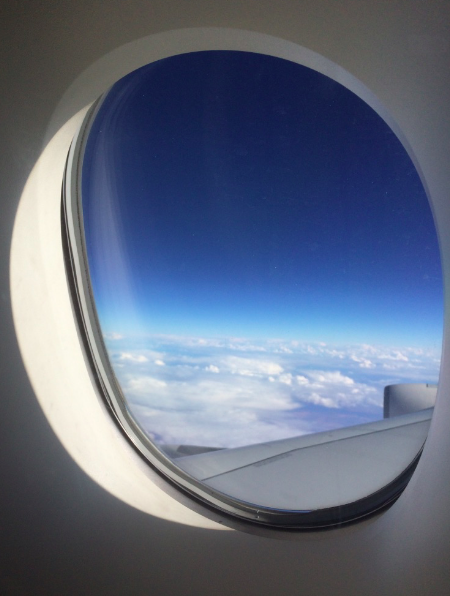
This sits alongside my last post, perhaps.
I’m looking out of a window at 39,000 feet thinking about what the lack of oxygen outside might be doing to my brain. I’m wondering why my mind is wandering and puzzling how it’s possible that the altitude, or perhaps it’s the expansive horizon, is elevating my thinking. I’m also questioning why I never think like this when I’m frantically searching for a parking space at the Heston Motorway Services (Eastbound), on a modestly miserable Monday.
Astronauts have reported similar feelings of wonderment and even bewilderment looking back at the earth from higher up in space. Indeed, there’s a phrase for this shift in perception – it’s called the overview effect and describes how daily distractions disappear when viewed from such an elevated perspective. One can rise above any inconsequential thoughts and see everything as being connected to everything else, at which point one can glimpse the faint reflection of human continuity. The vastness of space somehow makes people feel simultaneously special and totally irrelevant. This can induce feelings of serenity or absolute panic. Some astronauts have even found God floating 500 kilometres above the earth’s surface.
I spend a lot of time on planes. Given the right combination of seat number, seat incline and flight time, thoughts like these occur with scheduled regularity. My best guess is that it’s because there’s a certain level of disconnection at 39,000 feet. I am often alone too, and while other passengers could use digital devices to make calls or send emails on planes, most generally don’t. Planes are among the last sacred spaces, places where people instinctively feel that any linear silence or mental privacy should be preserved.
There is also the thought that you cannot get off. Once aboard, you have to tightly fasten your seat belt and surrender yourself to this truth. This constraint can result in a certain calmness, which some people cite as being a prerequisite for fresh thinking. There is simply less we can do at 39,000 feet. This means we can think more about where we’ve been or where we are going in a physical and metaphysical sense. “If you want to change where you’re at, you have to change where you’re at” as a friend of mine once said.
